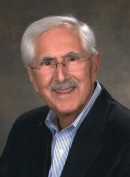THE QUEST FOR TRUE SELF

Dr. Peter Kalellis
Most people who seek therapy are looking for a solution to what appears to be a serious problem or they want a possible change in their life just to be happy. Obviously they are not happy with themselves or their current life. Unhappy individuals may need to change how they think, feel, and behave—or they may want to change another significant person in their life, be it a lover, mate, spouse, or family member. Here lies reality. Promises break like balloons, plans fall apart, love affairs carry no guarantees, and marriage vows are violated. Everything in life is at least a little bit broken or fragile.
IT’S IN THE PAST
Our tendency is to think mostly of the hurts that we have experienced yesterday or last month or last year. There is no way that we can undo these hurts; they belong in our past. Books and movies can be edited, but events that occurred in the past cannot change. Our hope is that they have left with us some lessons of value. It is of emotional benefit when we can say goodbye to our past and let go of repressed feelings or thoughts—such as anger, judgment, frustration, and disappointment. To some extent, all of us have been wounded. All of us, from the moment we emerge from the womb, take spills, get dropped, get burned, get rejected, and are abused in physical and emotional ways. Nobody reaches adulthood without deep scars. These scars may be permanent, but they are not fatal.
Daily life brings us to new levels of realization, not only about where we are but about who we truly are. Who is the real you and who is the real me? How we perceive ourselves and what is the truth about ourselves are areas we need to identify. Perceptions that may be influenced by early-life programming—from parents, teachers, peers or significant other adults—precipitate and dictate our choices. Our perception of who we really are needs to be tested. An individual who says, “I am what I am because of the way I was raised, or because of my ethnic or religious background, or because of things that happen to me,” believes that he or she has no other choice—that their character is indelible. Actually, their self-knowledge is limited. Accepting the truth about who we truly are is a challenge that results in emotional growth and better self-image.
SELF-KNOWLEDGE IS KEY
One of the best ways to gain accurate self-knowledge is to explore our current thoughts about ourselves. Upon awakening each morning, as we look in the mirror, what do we see or think of ourselves? Truly, those thoughts precipitate feelings about who we are, and we move on to design our daily life. Asking, “Who am I?” is an important question. Can you or I give an honest answer? This is a challenge.
It’s important to be yourself, but the true self. We know the damage done by being false to ourselves and to others. But being your true self goes much deeper. Most people don’t know how much wisdom, peace and power reside in the true self. This is not the everyday self that gets mixed up with all the business of life, the true self is a deeper self. Before coming to know the true self, one must confront the false self that we usually spend a lifetime constructing and nourishing. The false self is what we present to the world. It is this self we want the whole world to revolve around. And to keep this false self requires a good deal of mental alertness.
TRUE OR NOT?
The trick is distinguishing what is our true self from what is not. If we had a switch that could turn off the everyday false self and turn on the true self, matters would be much simpler. But human nature is divided. In some moments we feel secure, accepted, peaceful, and certain. At those moments, we are experiencing the true self. At other moments, we experience the opposite, and then we are in the grip of the familiar everyday false self. The trouble is that both sides are convincing. A person with a true self promises something and fulfills his or her promise or in an honest way says, “I’m sorry I cannot do what you would like me to do.” A person with a false self may make a promise with enthusiasm and fancy words that could be believable, but cannot keep a promise.
When we are under stress, feeling overwhelmed by major problems, crisis, doubts, and insecurity, the true self might as well not exist. We are experiencing a different reality colored by a defensive mind, resorting to our false self—trying to be convincing or using manipulation to win. At those dark and difficult moments, we try to get some outside perspective about what is happening. The qualities of the everyday false self and the true self are actually very different: In the quest for the true self, a person begins to appreciate and accept one’s personality and one’s life as an essential way that God calls us to be ourselves. As we move closer to becoming our true selves—the selves we are meant to be—the more loving parts of us are naturally magnified, and the more negative parts are naturally diminished.
Once we learn to live our true self, we can never be satisfied with the false self again; it would feel silly and superficial. Look at the qualities of the true self: self-reliant, evolutionary, loving, creative, knowing, accepting, and peaceful. Whenever anyone is in crisis, whether the problem is a troubled marriage or difficulties at work or over the question of money, the person will make the best decisions by using these good qualities. Trust that information you uncover about your true self will in some way lead to a greater sense of peace and joy about yourself.

Dr. Peter M. Kalellis is a psychotherapist, marriage and family therapist, lecturer, and writer. He has a doctorate in clinical psychology and is the author of many books. He maintains his practice in Westfield, New Jersey.



